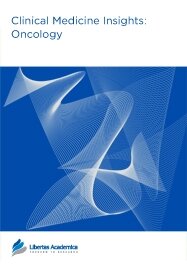

Publication Date: 02 May 2011
Type: Review
Journal: Clinical Medicine Insights: Oncology
doi: 10.4137/CMO.S7232

Despite advances in upfront therapy, the prognosis in the great majority of patients with glioblastoma (GBM) is poor as almost all recur and result in disease-related death. Glioblastoma are highly vascularized cancers with elevated expression levels of vascular endothelial growth factor (VEGF), the dominant mediator of angiogenesis. A compelling biologic rationale, a need for improved therapy, and positive results from studies of bevacizumab in other cancers led to the evaluation of bevacizumab in the treatment of recurrent GBM. Bevacizumab, a humanized monoclonal antibody that targets VEGF, has been shown to improve patient outcomes in combination with chemotherapy (most commonly irinotecan) in recurrent GBM, and on the basis of positive results in two prospective phase 2 studies, bevacizumab was granted accelerated approval by the US Food and Drug Administration (FDA) as a single agent in recurrent GBM. Bevacizumab therapy is associated with manageable, class-specific toxicity as severe treatment-related adverse events are observed in only a minority of patients. With the goal of addressing questions and controversies regarding the optimal use of bevacizumab, the objective of this review is to provide a summary of the clinical efficacy and safety data of bevacizumab in patients with recurrent GBM, the practical issues surrounding the administration of bevacizumab, and ongoing investigations of bevacizumab in managing GBM.
PDF (522.56 KB PDF FORMAT)
RIS citation (ENDNOTE, REFERENCE MANAGER, PROCITE, REFWORKS)
BibTex citation (BIBDESK, LATEX)
XML
PMC HTML
Publishing in Air, Soil and Water and Water Research was the best experience I have had so far in an academic context. The review process was fair, quick and efficient. I congratulate the team at Libertas Academica for a very well managed journal.Magnus Karlsson (IVL Swedish Environmental Research Institute, Stockholm, Sweden) What Your Colleagues Say
Copyright © 2012 Libertas Academica Ltd (except open access articles and accompanying metadata and supplementary files.)
FacebookGoogle+Twitter
PinterestTumblrYouTube